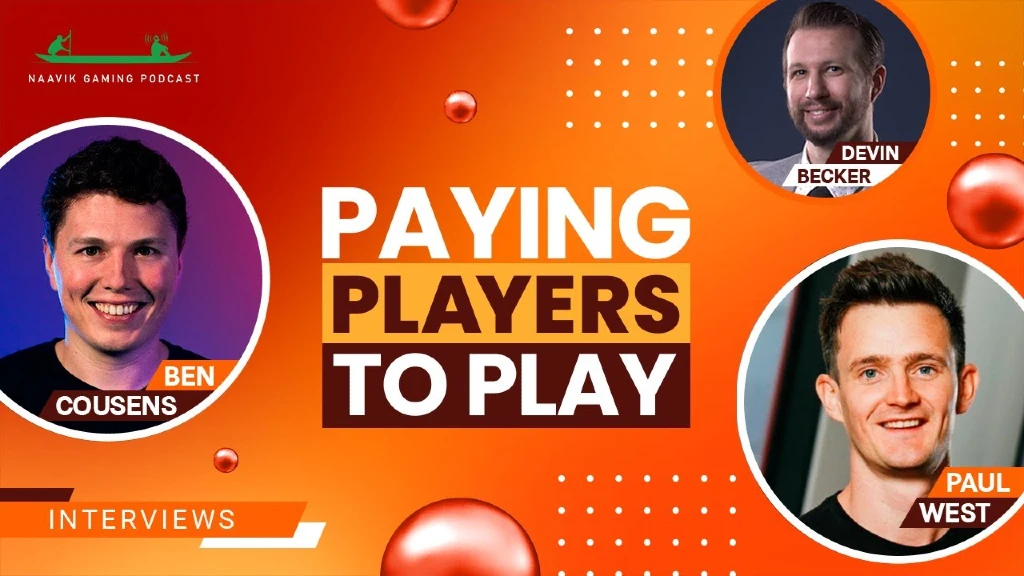In this Metacast episode, Matt Dion, Abhimanyu Kumar and Nicolas Vereecke, join your host Maria Gillies to discuss the recent Ubisoft Buyout Interest and if there are any parallels between this ongoing situation and Activision Blizzard’s acquisition. The team also discusses Meta’s struggles to recover market value following its metaverse pivot. Finally, the group discusses Playable World’s recent raise, as well STEPN’s new move-to-earn payment structure.
Ubisoft Attracts Buyout Interest
- Context
- According to a report by Bloomberg, Ubisoft could potentially be bought out by private equity firms Blackstone Inc. and KKR & Co., although this has been denied by Ubisoft.
- Perhaps unsurprising seeing as how Ubisoft’s stock has been on the decline since 2021. Bookings were down by 20% in June 2021.
- Ubisoft also received public backlash last year over allegations of a toxic working environment and a lack of efforts to improve.
- Many feel this parallels what was seen in January when Activision Blizzard was bought over by Microsoft after years of damning allegations of a problematic working environment.
- Interestingly, the companies interested in acquiring Ubisoft are private equity firms rather than major strategic investors.
- As Ubisoft has significantly more employees than any company looking to acquire them, we can assume many people currently working for Ubisoft would lose their jobs if the company was acquired.
Meta Struggles to Recover Market Value
- Context
- In early February, Meta’s shares dropped by 26%, wiping $230 billion from their market value
- This was because younger users, who represent an estimated 97% of Meta’s revenue, have been moving to other platforms such as Tiktok. Meta has hence seen a drop in daily users for the first time.
- Investors are not expecting complete recovery anytime soon, especially considering the huge amounts Meta continues to put into developing the Metaverse.
- Meta invested $10 billion into the Metaverse in 2021 alone.
- Meta is not the only major company losing shares. Alphabet Inc., Google’s parent company, also reported first quarter earnings that failed to meet investor expectations.
- A major factor leading to this is competition from Tik Tok, making it difficult for Google to monetise short reels on YouTube.
- Seeing as how Meta is losing users, this has led some to question the possible profitability of the upcoming Metaverse.
- The Metaverse will also face a competitive landscape as other companies are aiming to create similar products, e.g. Playable Worlds (which will be discussed below).
- With the amount Meta has invested, the Metaverse will need a huge user base to break even. However, Meta is already losing users.
- Meta also plans to charge a high percentage to creators, creating backlash.
- Meta charges 47.5%, compared to its competitors Steam and Epic Games who both charge about 30%.
Playable Worlds Raise $25 Million
- Context
- Playable Worlds is a game studio started by Eric Goldberg and Ralph Koster, a renowned figure in the gaming industry.
- They recently raised $25 million to develop a cloud native sandbox massive multiplayer online game from investors such as Kakao Games, BITKRAFT and Lilith Games.
- The sandbox will take advantage of cloud computing to create a persistent world and will be similar in concept to the Metaverse.
- Interestingly, the technology, not the game itself, is positioned as the main product.
- The game’s purpose is to draw people to the technology, which they might then be able to use to create their own experiences.
STEPN: Move-to-Earn or Ponzinomics?
- Context
- STEPN is a blockchain-based NFT game that tracks the player’s movement to pay them in in-game currency which can be traded for real money. The game includes Game-Fi and Social-Fi elements.
- It is similar in concept to Axie Infinity, but based around the idea of “moving to earn.”
- Many have denounced it merely as a ponzi scheme or ponzinomics.
- STEPN has implemented measures to control the number of players and amount of activity n the economy.
- An activation code is required to play the game.
- There is an energy system to limit how much a player can earn.
- Virtual shoes, which need to be purchased to play, need to be repaired regularly.
- Additionally, it’s relatively inaccessible for those unfamiliar with cryptocurrency a pair of shoes is very expensive.
- STEPN stands out against its competitors with the idea of “move to earn” as it encourages their players to live healthier lifestyles.
- STEPN could think about partnering with health insurance providers to enable players to “earn” money by paying less for insurance.
- STEPN will likely soon draw attention from sports-related companies such as Nike.
- Like other digital economies before it, is unlikely to be sustainable.
- Digital economies often have a lifespan as such: start out being profitable → become extremely popular → inflation occurs → the company struggles to introduce new features to balance the economy.
- Is unlikely to be the last we see of ponzinomic economies as people will always be looking for ways to make fast and easy money.








